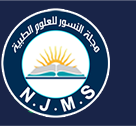Abstract
Diabetes mellitus type 2 (T2DM) is a common metabolic condition characterized by persistently elevated blood sugar levels. AFB1 is one of the most hazardous mycotoxins and is the most poisonous and carcinogenic of the aflatoxins, more dangerous than cyanide, arsenic, and organic pesticides. AFB1 has been classified as a group I human carcinogen by the International Agency for Research on Cancer (IARC). The purpose of this investigation is to look at AFB1 levels in type 2 diabetics' blood and their impact on their liver and kidney functioning. A case-control investigation was carried out between November 2022 and January 2023. Patients who visited Al-Kindy Hospital, Endocrines, and Diabetes Central/Baghdad provided samples. A total of 177 patients were examined, 93 of whom had T2DM (44 men and 49 women) and 84 of whom were controls (37 men and 47 women). The results showed that both the type 2 diabetics and the control group had higher levels of AST, urea, creatinine, FBS, and HBA1c in the groups that carried the AFB1. Elevated levels of HBA1C and FBS in the AFB1-bearing groups in both patients and controls indicate an exacerbation of diabetes mellitus in the patients and pre-diabetes in the healthy groups. According to the study's findings, females are more sensitive to AFB1 than males. An aggravation of diabetes mellitus in the patients and prediabetes in the control groups is indicated by elevated levels of HBA1C and FBS in the AFB1-bearing groups of both patients and controls.
First Page
9
Last Page
17
Recommended Citation
Sirhan, Alaa Edan and Al-Jumaily, Sami Abd-Redh
(2024)
"The Role of Aflatoxin B1 in the Exacerbation of Type 2 Diabetes and its Effects on Liver and Kidney Functions,"
Al-Nisour Journal for Medical Sciences: Vol. 6:
Iss.
1, Article 2.
DOI: https://doi.org/10.70492/2664-0554.1117

